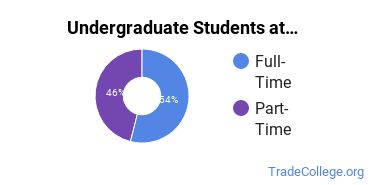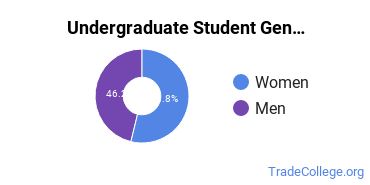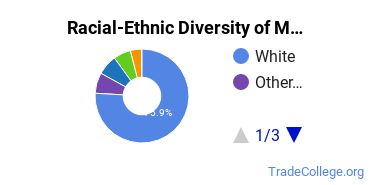Find Trade Colleges
Mayville State University Trade Programs
Located in Mayville, North Dakota, Mayville State University is a public institution. The rural area surrounding the school is great for students who prefer living in a country setting.
Featured schools near , edit
Where Is Mayville State University?

Contact details for Mayville State University are given below.
| Contact Details | |
|---|---|
| Address: | 330 Third Street Ne, Mayville, ND 58257-1299 |
| Phone: | 701-788-2301 |
| Website: | www.mayvillestate.edu |
Can I Afford Mayville State University?
| In State | Out of State | |
|---|---|---|
| Tuition | $6,579 | $8,208 |
| Fees | $1,356 | $1,356 |
| Books and Supplies | $1,000 | $1,000 |
| On Campus Room and Board | $9,088 | $9,088 |
| On Campus Other Expenses | $3,100 | $3,100 |
Student Loan Debt
It's not uncommon for college students to take out loans to pay for school. In fact, almost 66% of students nationwide depend at least partially on loans. At Mayville State University, approximately 66% of students took out student loans averaging $6,399 a year. That adds up to $25,596 over four years for those students.
Mayville State University Undergraduate Student Diversity

There are also 23 graduate students at the school.
Gender Diversity
Of the 603 full-time undergraduates at Mayville State University, 43% are male and 57% are female.

Racial-Ethnic Diversity
The racial-ethnic breakdown of Mayville State University students is as follows.

| Race/Ethnicity | Number of Grads |
|---|---|
| Asian | 1 |
| Black or African American | 43 |
| Hispanic or Latino | 41 |
| White | 457 |
| International Students | 22 |
| Other Races/Ethnicities | 39 |
Geographic Diversity
North Dakota students aren't the only ones who study at Mayville State University. At this time, 13 states are represented by the student population at the school.
Over 9 countries are represented at Mayville State University. The most popular countries sending students to the school are Canada, Honduras, and Australia.
Mayville State University Trade School Concentrations
The table below shows the number of awards for each concentration.
| Major | Bachelor’s | TOTAL |
|---|---|---|
| Laboratory Sciences & Medical Technology | 3 | 3 |
| Medical/Clinical Assistant | 0 | 0 |
| TOTAL | 3 | 3 |
References
*The racial-ethnic minorities count is calculated by taking the total number of students and subtracting white students, international students, and students whose race/ethnicity was unknown. This number is then divided by the total number of students at the school to obtain the racial-ethnic minorities percentage.
- College Factual
- National Center for Education Statistics
- Image Credit: By Willjay under License
More about our data sources and methodologies.
